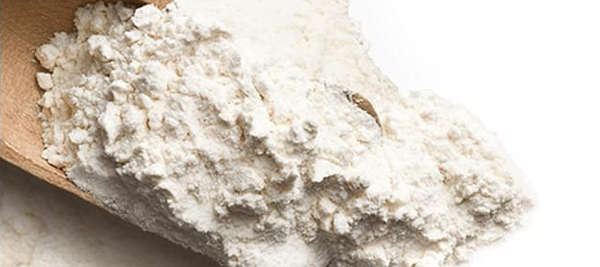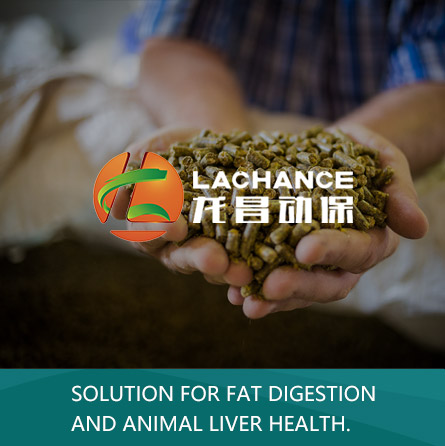Lachance Group Joins Forces with Three Major Research Institutes to Write a New Chapter in the Livestock Industry

As a high-tech enterprise deeply engaged in the natural extraction of feed additives, Lachance Group places great emphasis on scientific research. The goal is to explore new applications and mechanisms of products like bile acids, while also verifying their effectiveness and safety to ensure they bring real benefits to the livestock industry.
Currently, Lachance Group has established solid cooperative relationships with Shandong Agricultural University, Nanjing Agricultural University, and the Yellow Sea Fisheries Research Institute of the Chinese Academy of Fishery Sciences.
On this basis, systematic, scientific, and rigorous research trials have been conducted on the application of bile acids across different animal species in livestock and aquaculture. These efforts have led to a series of significant research outcomes, widely recognized in the industry, with over 30 high-quality SCI papers published.

Liver Health and Homeostasis Regulation Research Institute—Deepening Cooperation and Expanding Results
Against the backdrop of national attention to healthy farming and food safety, on May 16, 2021, Lachance Group established a formal partnership with Professor Zhao Ruqian's team from the Key Laboratory of Animal Physiology and Biochemistry of the Ministry of Agriculture and Rural Affairs. Together, they founded the Liver Health and Homeostasis Regulation Research Institute. Both parties focus on key issues in the regulation of animal liver homeostasis and bile acids, working towards applying research results in the livestock industry.

In the field of bile acid regulation for liver health and homeostasis, notable experimental achievements have been made. These include verifying bile acids' ability to inhibit endotoxin-induced inflammatory responses, stabilizing bile acid levels in animals through supplementation, improving blood sugar and lipid levels, and assessing safety. Other achievements include enhancing the growth performance of broiler chickens, promoting muscle development, reducing inflammatory markers in the intestines and liver, alleviating heat stress in laying hens, and improving egg quality and production performance. These findings provide scientific support for liver health regulation in livestock and poultry, offering practical examples for animal production.

In future research, the focus will continue to be on understanding the specific mechanisms and standards of bile acid regulation for animal liver health indices. Comprehensive analysis will also be conducted on the role of bile acids in reducing costs and improving efficiency in animal husbandry, optimizing feed formulations, enhancing disease resistance, promoting detoxification mechanisms, and regulating animal feeding and welfare.
In future research, the focus will continue to be on understanding the specific mechanisms and standards of bile acid regulation for animal liver health indices. Comprehensive analysis will also be conducted on the role of bile acids in reducing costs and improving efficiency in animal husbandry, optimizing feed formulations, enhancing disease resistance, promoting detoxification mechanisms, and regulating animal feeding and welfare.

Poultry Fat Metabolism Research Center—Bridging the Gap Between Research and Market, Creating a Tech-Driven Market
In the poultry industry, fat metabolism is a key issue that needs to be addressed to improve industrial efficiency. It is not only a bottleneck for poultry farmers but also a constraint on the industry’s growth. To address this, on May 1, 2022, Lachance Group collaborated with Professor Lin Hai's team from the College of Animal Science and Technology at Shandong Agricultural University. Together, they established the Poultry Fat Metabolism Research Center to provide precise and effective technical support for the poultry farming industry by combining scientific research with practical industry needs.

Significant progress has already been made in the research on poultry fat metabolism. According to Wang Jianmin, the technical service manager of Lachance Group, current experiments focus on the effects of bile acids on fat metabolism in laying hens and broilers, the detoxifying effects on mold toxins in feed, the impact on broiler liver metabolism with high-fat diets, and the influence on the production performance and fat metabolism of late-laying hens. These studies have confirmed that bile acids play an active role in poultry fat metabolism, significantly improving poultry production performance, reducing farming costs, and enhancing meat and egg quality.
In the next phase, the research center will continue to explore topics related to poultry fat metabolism, utilizing public innovation platforms and high-quality resources to promote the application of bile acid technology, ultimately reducing costs and increasing efficiency in poultry farming.

Aquaculture Disease Immunity and Omics Research Center—Building a Research Platform, Collaborative Innovation System
On August 4, 2023, led by Academician Chen Songlin of the Yellow Sea Fisheries Research Institute, Lachance Group and the Yellow Sea Fisheries Research Institute officially established the Aquaculture Disease Immunity and Omics Research Center. The center aims to explore the molecular mechanisms by which bile acids improve immunity and survival rates in species like tongue sole and other flatfish, providing a strong theoretical foundation for the industrial application of bile acids and promoting the stable development of the aquaculture industry.


This collaboration brings together multiple resources to address challenges in the research of aquaculture disease immunity and omics. Through this partnership, both parties aim to provide breeding strategies for the aquaculture industry and create a research platform with significant influence. This will offer technological support for the sustainable and high-quality development of the aquaculture industry.

School-Enterprise Cooperation Accelerates Industrial Revitalization
School-enterprise cooperation provides intellectual support and innovative ideas for the development of the livestock industry, promoting mutual benefit and resource sharing,” said Cao Aizhi, Lachance Group's Director of Science and Technology. The company plans to deepen its cooperation with research institutes, enhance information sharing, and jointly develop innovative applications for bile acids in the livestock industry. This cooperation aims to turn the "potential energy" of university research into the "driving force" for high-quality livestock industry development, providing practical, feasible solutions and efficient services for the industry's green and healthy growth. Lachance Group will continue to invest in research and development, sharing opportunities with research institutes for mutual development and success.










